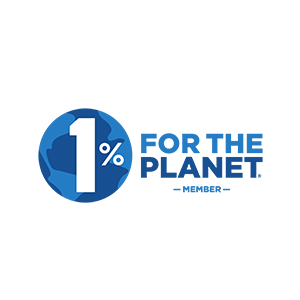
7 Hot Tips for Work-Life Balance
WRITTEN BY LAUREN KATAKOWSKI, MS AND DR. SWATHI
Our work often takes precedence over the other things in our lives especially when technology makes workers accessible around the clock. Our drive for success can overpower and push aside needs for well-being and fear of job loss can incentivize longer hours. Work-life balance can be a challenge but it is critical to improve our physical, emotional, and mental well-being and to help us recharge for long-term success. Compounded work stress can be mentally damaging and it can be damaging to relationships, health, and overall happiness. A work-life balance routine looks different for everyone. Read on to find some tips to be successful in all avenues of your life. (1)
Identify your values- identifying your work-life values will enable you to have integrity about your values and the responsibilities you choose to take on. Being able to reflect on what is important to you, what is essential, what is non-negotiable and what are deal breakers will promote a good balance. Things you may ask yourself may be: what are my values? What fulfills me? What kind of life do you picture for yourself?
Narrow your focus- After identifying your values; you might consider how they translate to your everyday routine. Your balance may involve going to the gym each morning, being able to pick up your kids from school, taking weekends off, having no technology evenings, or going to the spa once a month. Narrowing down your essentials can begin the steps you take to live out your values, weekly and monthly.
Eliminate time-wasting activities and people- after narrowing down your essentials and your values; identify what is most important in your life, not someone else’s. Drawing firm boundaries is an important step so you may devote time to high-priority people and activities, after that it will be easier to determine what needs to be trimmed away. For example, if you tend to internet surf but it sends you off task, establish some rules to keep you on task. This may mean turning off your notifications at a certain time of the day and only replying to emails during certain time-frames or using productivity software. If you find that your time is being wasted by less constructive people, or being cornered by the office chatterbox, find a way to politely excuse yourself and preserve your peace of mind. It may seem selfish to do these things, but it’s a form of self-care to distance yourself so that you have enough to give. It’s like the airplane metaphor, if you have a child, you put the oxygen mask on yourself first, and then you can help your child.
Honor yourself and your energy- we all want to build a fulfilling life, but that requires energy. We generally feel the best when we know we are contributing to the best of our ability in an important role. We can honor ourselves by paying close attention to our body and when we feel the most alert to tackle our tasks and responsibilities. If you have some flexibility, prioritize your most important tasks at your energetic peak and then take a break and regroup for your next set of functions. It may be essential to identify what drains your energy, whether it be a specific person who may love to gossip or tasks you dread doing. Try listening to music that is uplifting and inspiring to you before work or on your break.
Prioritize your health- prioritizing your health doesn’t have to consist of radical activities, it could be as simple as meditation for 5 min a day, taking a CBD supplement daily, or seeing a therapist regularly. Your overall physical, emotional, and mental well-being should be your primary goal. If you are struggling with anxiety from work deadlines or bills, depression from chronic illness, or the loss of a loved one, coping can be difficult. Talking to a professional can help manage feelings you may be experiencing and help validate that you may need time off. When battling a chronic illness such as cancer or an autoimmune disease, symptoms will wax and wane. Guilt from needing to call in sick can be overwhelming but overworking and forcing yourself through the workday can possibly lead to more sick days in the future. Give yourself permission to not be okay and some time to recuperate; you will be happier and healthier if you are at peace with boundaries and your limits.
Unplug- technology has made our lives better and work easier, but has created expectations of constant accessibility. Whether you work remotely or you are networking with colleagues, the work day can seem like it’s never-ending. It’s important for your well-being and your sleep, to not be accessible all the time. Find moments to shut off your phone and enjoy the moment. Phone notifications can inject an undercurrent of stress into your system. Stay true to quality time at your kid’s soccer game or out to eat with your loved one and don’t answer work calls or notifications. This change will give you a greater sense of control over your life and schedule.
Take time for yourself and your family- while your job is an important part of your life and source of income, remember that it does not define you. You represent the company you work for but remember you were an individual before taking the position and should prioritize and nourish your other life activities and hobbies that make you happy. Focusing on your hobbies and your family requires deliberate action and you may need to firmly plan for personal time if you wish to have other things in your life that are enriching and fulfilling. Take control of planning time with your loved ones and having date nights with your significant other. One-on-one time may seem weird to plan but it will ensure the time is not lost to something else and it will nourish your relationships. It’s easy to get wound up in the anxiety of work and perfectionism of what you do there, but remember that your co-workers don’t love you or appreciate you the way that your loved ones do. (2-5)
–
It's normal to go through bouts of stress. Work piles up, and family and home life may have challenges too. reevaluating your situation is important when stress becomes the norm and making some healthy choices for your life to avoid burnout may be necessary. If you are not sleeping consistently and your health and diet are suffering and you've gotten to a point where it all seems impossible. Looking for a new job may align better with your values and needs. If the stress and toxicity of your work environment have gotten out of hand and it is not manageable, and it's impacting your mental health, seeking a health professional may be what is needed to get you through the tough times in order to cope.
References:
- Depression: What is burnout? Informed Health Online. https://www.informedhealth.org/what-is-burnout.html. Accessed May 13, 2021.
- West CP, et al. Interventions to prevent and reduce physician burnout: A systematic review and meta-analysis. The Lancet. 2016; doi:10.1016/S0140-6736(16)31279-X.
- 5 things you should know about stress. National Institute of Mental Health. https://www.nimh.nih.gov/health/publications/stress/. Accessed May 13, 2021.
- Gilmartin H, et al. Brief mindfulness practices for healthcare providers: A systematic literature review. American Journal of Medicine. 2017; doi:10.1016/j.amjmed.2017.05.041.
- 12 Steps to Your Ideal Work-Life Balance. Healthline. Published April 7, 2022. Accessed February 23, 2023. https://www.healthline.com/health/mental-health/work-life-balance#let-your-energy-work-for-you
–
This article was edited by Dr. Swathi and was written by Element Apothec Scientific Communications Intern, Lauren Katakowski. She is a published researcher and medical writer. She completed a Masters of Nutrition and Dietetics from Central Michigan University.











